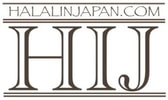AI Influence On Halal Industry: How Technology is Shaping Halal Practices?The halal industry has undergone significant transformations in recent years, and one of the driving forces behind this change is the integration of artificial intelligence technology. With AI's growing influence, the halal industry is experiencing a paradigm shift in how halal practices are shaped and implemented. One area where AI is going to make a profound impact is in the halal certification process. Traditionally, obtaining halal certification involved manual inspections and audits to ensure compliance with Islamic dietary laws. However, AI-driven systems are now being utilized to streamline and automate this process. These systems utilize advanced algorithms to analyze ingredients, production methods, and supply chain data to determine if a product meets the stringent requirements of halal certification. This integration of technology not only expedites the certification process but also enhances its accuracy and reliability. By leveraging AI capabilities, certifying bodies can assess a larger volume of products more efficiently while minimizing human error. The influence of AI on the halal industry extends beyond certification processes and consumer interactions. It also plays a vital role in supply chain management, quality control, and traceability. By harnessing data analytics and machine learning algorithms, companies can monitor every stage of production - from sourcing raw materials to distribution - ensuring transparency and maintaining high standards throughout. Furthermore, technology is also revolutionizing how consumers interact with the halal industry. Mobile applications powered by AI algorithms enable users to easily identify halal products by scanning barcodes or product labels. This empowers consumers to make informed decisions about their purchases while ensuring adherence to their religious dietary requirements. Global Significance: Health, Safety, And Ethical Aspects ImpactsIn today's world, where ethical consumption choices and health consciousness are on the rise, exploring the benefits and relevance of halal principles has become increasingly important. Halal principles, rooted in Islamic teachings, not only encompass religious requirements but also emphasize ethical practices and health and safety considerations. One of the key benefits of adhering to halal principles is the assurance of consuming products that are prepared in a clean and hygienic manner. Halal practices require strict adherence to cleanliness, ensuring that all aspects of food production, from sourcing ingredients to preparation, meet stringent hygiene standards. This provides consumers with peace of mind regarding the safety and quality of the products they consume. Moreover, the global significance of the Halal industry extends beyond religious considerations. The demand for Halal products and services has transcended borders and cultures, attracting non-Muslim consumers who perceive them as high-quality and ethical choices. This trend has been driven by increasing awareness about food safety standards, animal welfare concerns, and ethical sourcing practices. Halal certification ensures that products have been produced in accordance with ethical guidelines, including fair trade practices and cruelty-free ingredients. This empowers individuals to make informed decisions aligned with their values. In addition to personal benefits, embracing halal principles can have broader societal impacts. By supporting businesses that adhere to these principles, consumers contribute to a more equitable economy where workers' rights are respected and environmental sustainability is prioritized. Embracing halal principles promotes an environment where everyone feels included and respected. As we navigate an increasingly interconnected global marketplace, understanding the relevance of halal principles becomes crucial for businesses as well. Incorporating these practices can open doors to new markets and consumer segments that prioritize ethical consumption choices. The Economic Impact of the Global Halal IndustryThe global halal industry has emerged as a significant player in the global economy, with its value and growth potential garnering attention from investors and businesses alike. As the demand for halal products and services continues to rise, it is important to take a closer look at the economic impact of this industry and its market size. The economic impact goes beyond domestic markets; it extends to international trade as well. Many countries have recognized the potential economic benefits associated with catering to the needs of Muslim consumers worldwide. They have implemented strategies to attract investments in their local halal industries and foster trade relations with other countries. The economy of the global halal industry is thriving, encompassing various sectors, including food and beverages, cosmetics, pharmaceuticals, finance, tourism, and more. It caters to the needs and preferences of Muslim consumers, who adhere to Islamic principles in their daily lives. The market size of the global halal industry is estimated to be worth 2.2 trillion dollars, with projections indicating further growth in the coming years. What Are The Halal Industry’s Global Market Opportunities?The halal industry is not just limited to the dietary preferences of Muslim consumers; it has evolved into a global phenomenon with significant economic implications. Understanding the halal industry and its global significance is crucial for businesses seeking to tap into the vast market opportunities it presents. With the increasing Muslim population and international trade opportunities, the industry's market size continues to grow exponentially, offering immense potential for businesses looking to expand their reach. For businesses willing to invest in understanding the intricacies of the halal industry, there are numerous market opportunities waiting to be explored. From developing innovative halal-certified products to establishing partnerships with local suppliers or distributors in key markets, companies can tap into this lucrative sector and gain a competitive edge. ConclusionAs technology advances at an unprecedented pace, AI's influence on the halal industry will only grow, reshaping how we approach and practice halal principles in today's modern world. This technology streamlines and automates the certification process, allowing certifying bodies to assess a larger volume of products efficiently.
AI also plays a vital role in supply chain management, quality control, and traceability, enabling companies to monitor every stage of production, ensuring transparency, and maintaining high standards. It opens doors to new markets and consumer segments while embracing values such as integrity and sustainability that resonate with an increasingly conscious consumer base. Moreover, AI revolutionizes consumer interactions, enabling mobile applications to easily identify halal products and ensuring adherence to religious dietary requirements. Recognizing the importance of the halal industry's global significance goes beyond acknowledging religious dietary requirements. Exploring the benefits and relevance of halal principles in today's world is essential for individuals seeking ethical consumption choices while considering health and safety aspects in their everyday lives. By embracing these practices, we not only make conscious decisions about what we consume but also contribute to a more inclusive and sustainable society. The economic impact of the global halal industry cannot be underestimated. Its market size continues to grow exponentially due to factors such as the increasing Muslim population and international trade opportunities. Businesses that recognize these trends can position themselves strategically within this thriving industry for long-term success. The last thought: AI has the potential to greatly impact the halal industry, ensuring compliance with strict guidelines and enhancing transparency. However, it is crucial to remember that while AI can assist in improving efficiency and accuracy, human oversight remains essential to address ethical concerns and make informed decisions. If you enjoyed this article, please leave your feedback and suggestions in the comments section below. This essay is a continuation of my interaction with AI.
0 Comments
Leave a Reply. |
Halal In Japan
|
|



 RSS Feed
RSS Feed





